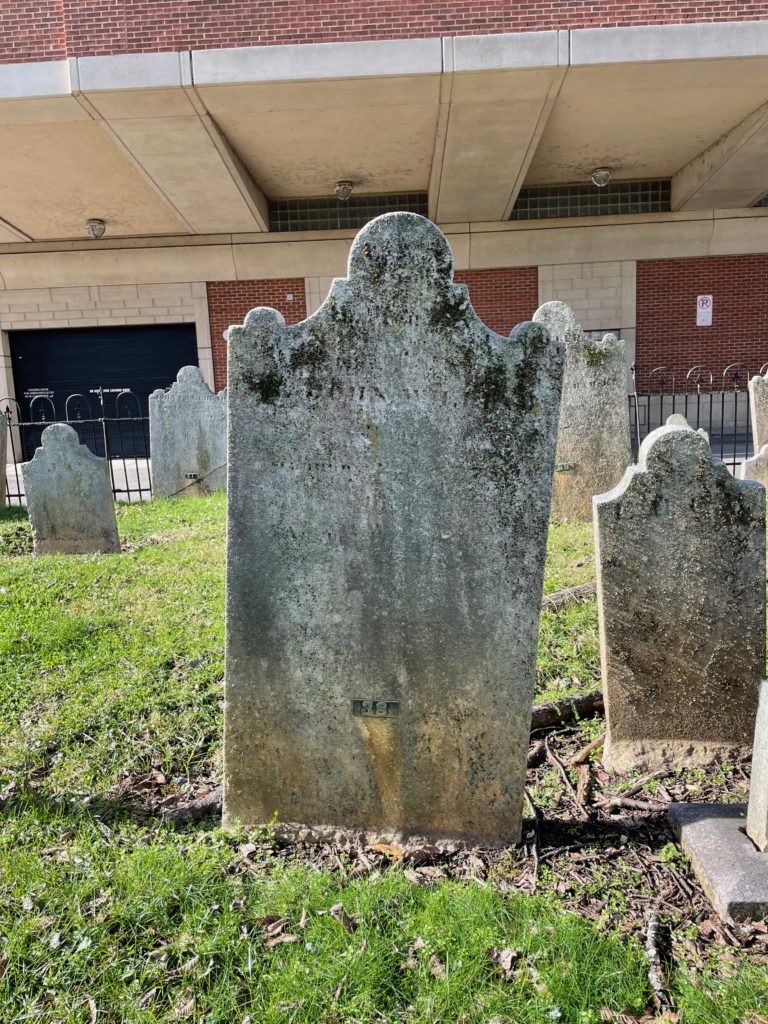Erik Visits an American Grave, Part 1,046
This is the grave of John Williams.

Born in rural North Carolina in 1778, Williams grew up in an upwardly mobile family and studied the law in Salisbury, North Carolina, in the late 1790s. After serving in the military for a brief time, he moved to Knoxville, Tennessee, passed the bar and established himself in that rising young town. He was a rising star in a state that provided lots of opportunities for men like him. Given that places like east Tennessee were primarily being settled by small farmers, anyone with an education and ambition had a good chance of rising. Williams had both. By 1807, he was appointed to a one-year term as Tennessee’s attorney general.
When the War of 1812 broke out, like most westerners, Williams was all-in. He raised a company of soldiers that intended to invade Florida. He wasn’t interested in fighting the British per se. He was an expansionist and that class of people cared a lot more about taking over new places than keeping the British from simply destroying the United States, which it almost did. They got to Florida in early 1813 where they engaged in the precise behavior they had signed up for: genocide. Williams just led his men from Seminole village to village to burn and kill. They just laid waste to the whole area. Well, that was good enough for the U.S. Army. The troops went back to Tennessee after raising hell and Williams was brought into the Army as a colonel to do more of the same under a more official banner. He then organized the 39th Infantry to go and kill the Red Creek Muscogee, or Creeks as they were then known. He came under the command of Andrew Jackson and they engaged in the Battle of Horseshoe Bend, one part of one of the most horrible wars of genocide in this nation’s dark and disturbing history. Naturally enough, he and Jackson learned to hate each other (Jackson hated everyone at some point) and they bickered over Williams’ duties after Horseshoe Bend. See, Williams went to Washington to lobby for more money for his regiment and to buy weapons. Jackson said that he was the commanding officer and they belonged to him. Williams defied this attempt to take away his autonomy. In conclusion, it’s a wonder this military managed to do anything useful in these years.
Anyway, in 1815, Jesse Wharton decided he didn’t want to be a Senator and so Tennessee sent Williams to Washington, despite such a lack of experience except for genocide. But it’s early 19th century Tennessee. That was plenty qualifying for those people. He then got a full term in 1817. This was the Era of Good Feelings, so there weren’t really parties per se. But Williams had some tendencies that would later be those of the Whigs, voting for instance to charter a new Bank of the United States and promoting the Missouri Compromise as a way to put the slavery question to rest forever. He became chairman of the Committee on Military Affairs and oversaw a reduction in the nation’s standing army. Moreover, he and Jackson also continued their feud. By this time, they really hated each other. After Jackson invaded Florida again in 1819, Williams claimed he did so not to protect American interests but to protect his own land investments near modern-day Pensacola. Jackson was furious at this besmirchment of his character. In fact, although Williams himself had invaded Florida, he was so distrustful of Jackson that he was one of only four senators to vote against the Adams-Onis Treaty that transferred Florida to the United States. Given Florida’s history, we probably mostly wish the Spanish had kept it.
Tennessee was a pretty pro-Jackson state in what would become the bitterly disputed 1824 presidential election. There was no way that Williams was going to go along with this. He hated Jackson so much. So he decided to support William H. Crawford’s bid instead. That split the Tennessee legislature. There was a pretty big fight and Williams definitely had his supporters, including Davy Crockett. But Jackson won and the consequence that there was no way that a Jackson supporter was ever going to support Williams going back to the Senate. So he was not selected for reelection in 1823 and Jackson went instead. Williams was very bitter about this.
Now identified with Adams after Crawford’s candidacy went nowhere, the new president almost named Williams Secretary of War, but Henry Clay suggested that for political reasons that should go to someone from the powerful state of New York. So Williams stayed in Tennessee for basically the rest of his life, though he was sent on some kind of diplomatic mission to Guatemala and possibly other Central American nations in 1826. He returned to the Tennessee legislature where he became a Whig supporting internal improvements, whether good roads or later railroads. Many urged him to run for Congress, but he refused to serve under Emperor Jackson. He just could not deal with Jackson as president.
Williams died in Knoxville in 1837. He was 59 years old.
John Williams is buried in First Presbyterian Church Cemetery, Knoxville, Tennessee.
If you would like this series to visit other senators selected in the 1816-17 season, you can donate to cover the required expenses here. Clement Storer is in Portsmouth, New Hampshire and James Fisk is in Swanton, Vermont. Previous posts in this series are archived here.
